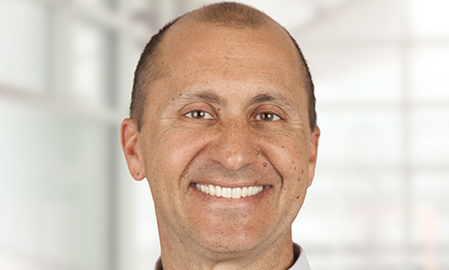There has been some discussion recently about how meaningful use isn’t making a difference on improving clinical care. While that may be true in the short term, the longstanding point of meaningful use is completely lost.
How many of us remember what a pay phone is? People now communicate in a significantly more efficient manner—but using a different method. Of course, it took some time to go from the analog phone system to where we are today, representing a marathon of sorts, rather than a sprint.
The main purpose of the electronic health record (EHR) incentive program is to transform all of our systems across the medical industry into electronic platforms that enable new frontiers in patient care and outcomes, such as data interoperability. Stimulus funds are available for participating providers, even though there are challenges to getting a practice or medical facility in position to enable this interoperability. There are even valid concerns about improving clinical care for the patient in the near term—but meaningful use (MU) isn’t the reason for the lack of immediate results.
This isn’t about having the patient better manage his or her diabetes, for example, and it isn’t about the seemingly endless data points that need to be entered into a digital system or making sure that the patient is following up on his or her course of treatment. These examples are absolutely important, but EHR and MU aren’t going to magically make things better overnight. With a willingness to embrace change and see these challenges as opportunities, we can collectively make the medical industry better in the long term—not only better for the patient but also for the practice.
Doctors who have been using a certified EHR for at least two years find clinical efficiency and practice financial benefits. There is generally also a positive sentiment around the effects of meaningful use, and adoption of EHR is moving forward across the country.

In talking with eye-care providers around the country, I know that the daily pressures of running the business, keeping up with technology, continuing excellence of care, engaging the patient in a “meaningful way” and finding avenues to make sure that the practice is relevant to the patient is all encompassing.
We’re seeing increasing success now as optometric practices embrace this change and move to certified EHR systems. Many use cloud-based EHRs that allow the provider to access systems anytime, anywhere and from any device. This allows the provider to do things like spend more quality time with the patient (as opposed to typing and talking simultaneously with his or her back turned to the patient), securely send and receive information from the patient via a patient portal or not have to come into the building to access data that you might need while away from the office.
EHR and MU are relatively new: this actually all started more than four years ago. While I understand, especially in today’s world, a need for immediate results, I can tell you with confidence that I think we are on the right track. Regardless of political affiliation, the government’s nudge to move the industry to a functional and effective common platform via certified EHR systems is a good thing, because it’s beneficial for providers’ businesses, the industry and patients. Over the next decade, clinical care, coordination and other aspects of the healthcare delivery system will improve as a result.
If you’re struggling with this concept, try connecting with peers to see what’s working for them. Consult with your practice management and EHR provider to help you address your business and regulatory concerns that are related to EHR and meaningful use. Be willing and flexible to roll with the changes that aren’t going to stop.
While we can’t predict those changes yet, we do have some insights now. EHR and MU will make a difference in the long run to not only improve clinical outcomes but also to help the provider enhance his or her practice. EHR and MU is more than a sprint; it’s a marathon with multiple checkpoints along the way.
Steve Baker is president, Eyefinity, a practice management and EHR provider.







